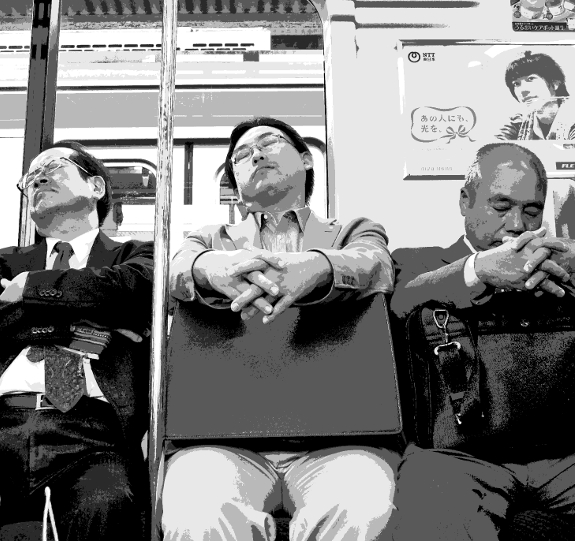Forced freedom for overworked nation
 Japan is considering forcing workers to take five compulsory paid holidays per year, in a bid to lessen the toll from rampant overworking.
Japan is considering forcing workers to take five compulsory paid holidays per year, in a bid to lessen the toll from rampant overworking.
Japan has a word for the problem – ‘karoshi - which means ‘death by overwork’.
The Japanese word ‘inemuri’ literally means, “sleeping while present”, and refers to the act of sleeping at one’s desk to show the boss they are working hard.
An unwritten rule of inemuri says that the person should remain upright while sleeping at work, to show they are still socially engaged in some way
But while long hours at the desk are a fixture of Japanese culture, an increase in suicide and deaths due to stress-related problems show it is a genuine social health issue.
A recent survey by the country’s labour ministry found that Japanese workers often use less than half of their leave allowance in a year. In 2013, employees on average took only nine of their 18.5 days entitlement.
In fact, one in every six workers took no paid holidays at all in 2013.
Local news outlet Jiji Press says the government wants to see 70 per cent of paid leave being used, and may legislate for mandatory holidays to make it happen.
The problem is almost inconceivable in countries where time for relaxation and recreation are considered the purpose of turning up every day.
The Japanese unit of the US travel website Expedia did a survey which found that workers in France take about 93 per cent of their 37 paid holiday days per year.
Spanish workers enjoy 32 paid holiday days and Denmark 29, and in those countries the average employee uses more than 90 per cent.
There is a business angle to taking holidays too, with Japanese economists saying days off encourage people to spend money on leisure activities, boosting the economy.
The possible enforcement of mandatory days off is combined with a move to shift the days adjacent to the weekend, so that people are encouraged to take domestic holidays.







 Print
Print